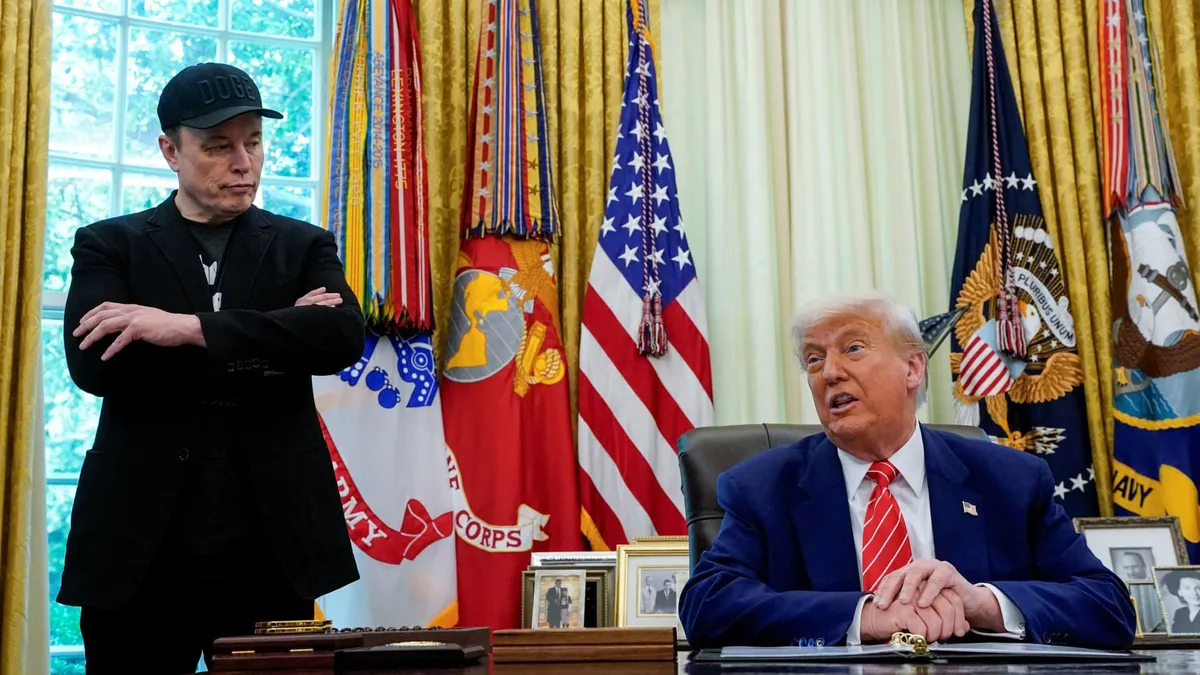
Not long ago, Donald Trump and Elon Musk appeared to be inseparable, frequently attending events together, participating in joint interviews, and openly praising one another. However, this camaraderie took a sharp turn as they found themselves embroiled in a very public feud. Tensions escalated as Trump threatened to pull back billions of dollars in government contracts for Musk's various companies, while Musk suggested that Trump could not have won the election without his support.
The conflict ignited when Trump criticized Musk's stance on the Republican tax-cut and spending bill. This disagreement quickly snowballed into a full-blown online brawl, taking place on Trump's Truth Social platform and Musk's X (formerly Twitter). Prominent businessmen, analysts, and political figures joined the fray, commenting on the escalating situation.
In the midst of the turmoil, billionaire investor Bill Ackman called for Trump and Musk to cease their quarrel, emphasizing that their reconciliation would benefit the nation. Ackman, the founder and CEO of Pershing Square Capital Management, who had previously endorsed Trump, stated, "We are much stronger together than apart." Musk acknowledged Ackman's sentiment with a reply: "You're not wrong."
U.S. Congressman Jim Jordan also expressed hope for a resolution between Musk and Trump during an appearance on Fox News. However, not everyone in Trump's circle was as supportive. Former senior Trump adviser Steve Bannon, who has had his own clashes with Musk, suggested that Trump should take drastic measures, including signing an executive order to seize control of SpaceX under the Defense Production Act.
As the feud continued, Wall Street reacted negatively, with Tesla shares plummeting over 14%, resulting in a staggering loss of approximately $152 billion in the company’s market value. Dan Ives, managing director and senior equity research analyst at Wedbush, described the conflict as "jaw-dropping" and a "shock to the market," expressing concerns that the fallout from the Musk-Trump battle would alter the regulatory landscape for Tesla, particularly regarding autonomous vehicle regulations.
Despite the turmoil, Ives maintained a bullish outlook on Tesla, although he acknowledged the feud complicates the Trump administration's regulatory framework moving forward. Another Tesla advocate, Ross Gerber, head of Gerber Kawasaki Wealth and Investment Management, criticized Musk for his behavior, stating that Musk's actions were detrimental to shareholders, saying, "Elon going postal on Trump and Tesla stock is getting walloped."
Investor Gary Black of Future Fund revealed that his firm had sold all its Tesla shares, arguing that the ongoing feud could exert additional pressure on the stock. He pointed out that previous assertions from Tesla bulls regarding the benefits of a Musk-Trump alliance in streamlining federal processes for Tesla's licensing are now less likely to materialize.
Market analyst David Rosenberg expressed concerns about how the feud might impact Musk's SpaceX, which has been pivotal in maintaining the U.S.'s lead in space technology. He noted that certain Republican members, citing Musk's opposition to the spending bill, might reconsider their support. The political implications of Musk's actions could prove to be highly significant, as Rosenberg discussed on CNBC's Squawk Box.
The public feud between Trump and Musk not only highlights the complexities of their relationship but also raises questions about the future of Tesla and the broader implications for government contracts and regulatory frameworks. As the situation unfolds, stakeholders in both the political and business arenas are closely watching how this conflict will evolve and what it means for the future of innovation and leadership in the United States.